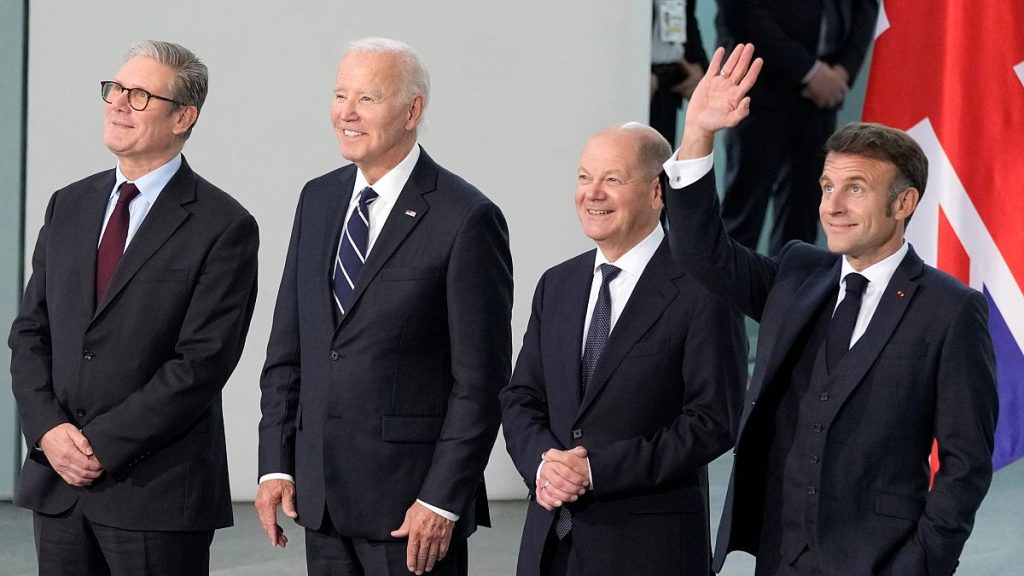During his short visit to Berlin, US President Joe Biden met with German Chancellor Olaf Scholz, French President Emmanuel Macron, and UK Prime Minister Keir Starmer to discuss further support for Ukraine as Biden’s time in office comes to an end. Biden expressed gratitude for Germany’s cooperation in holding Iran accountable for its destabilizing policies, including providing missiles and drones to Russia to use against Ukraine. The leaders also likely discussed the recent death of Hamas leader Yahya Sinwar and the situation in Israel and Gaza, with all four leaders calling for a ceasefire and Biden urging Israel to pursue peace after the killing of Sinwar, which he described as “a moment of justice.”
This visit marks Biden’s first and only official visit to Berlin during his time in office and the first bilateral visit by a US president since Barack Obama’s presidency eight years ago. The trip underscores the importance of the relationship between the US and Germany, which may see shifts in priority depending on the outcome of the upcoming US elections in November. Biden’s focus on further support for Ukraine and discussions on Iran’s destabilizing actions highlight the importance of international cooperation in maintaining peace and stability in the region.
The meetings in Berlin also touched on the importance of coordination among European countries in imposing sanctions against Iran, particularly in light of recent developments. Biden emphasized the need for continued coordination in holding Iran accountable for its actions and ensuring that European sanctions have a lasting impact. The discussions likely included strategies for addressing the ongoing conflict in Ukraine and finding ways to prevent further escalation of tensions in the region.
Biden’s visit to Berlin comes at a critical time as he works to solidify alliances and strengthen partnerships with European leaders ahead of his departure from office. The discussions with Scholz, Macron, and Starmer underscore the importance of transatlantic cooperation in addressing global challenges and promoting peace and security. Biden’s emphasis on the need for international coordination in addressing common threats highlights the shared interests and values that bind the US, Germany, France, and the UK.
The visit also highlights the importance of US engagement in European affairs and the continued partnership between the US and key European allies. Biden’s focus on Ukraine and Iran reflects the ongoing commitment of the US to promoting stability and security in the region. The outcome of the discussions in Berlin may have implications for future cooperation on a range of issues, including security, trade, and climate change. Biden’s visit serves as a reminder of the enduring ties between the US and Europe and the shared commitment to upholding peace and democracy.
Overall, Biden’s visit to Berlin reaffirms the strong bonds between the US and its European allies and underscores the importance of continued cooperation in addressing global challenges. The discussions with Scholz, Macron, and Starmer demonstrate a shared commitment to promoting peace, security, and stability in the region and highlight the value of international partnerships in addressing common threats. Biden’s focus on key issues such as Ukraine, Iran, and the conflict in Israel and Gaza signals a commitment to addressing complex challenges through diplomacy and multilateral cooperation. As Biden’s time in office draws to a close, his visit to Berlin serves as a reminder of the enduring strength of transatlantic relations and the shared commitment to advancing common interests and values.


